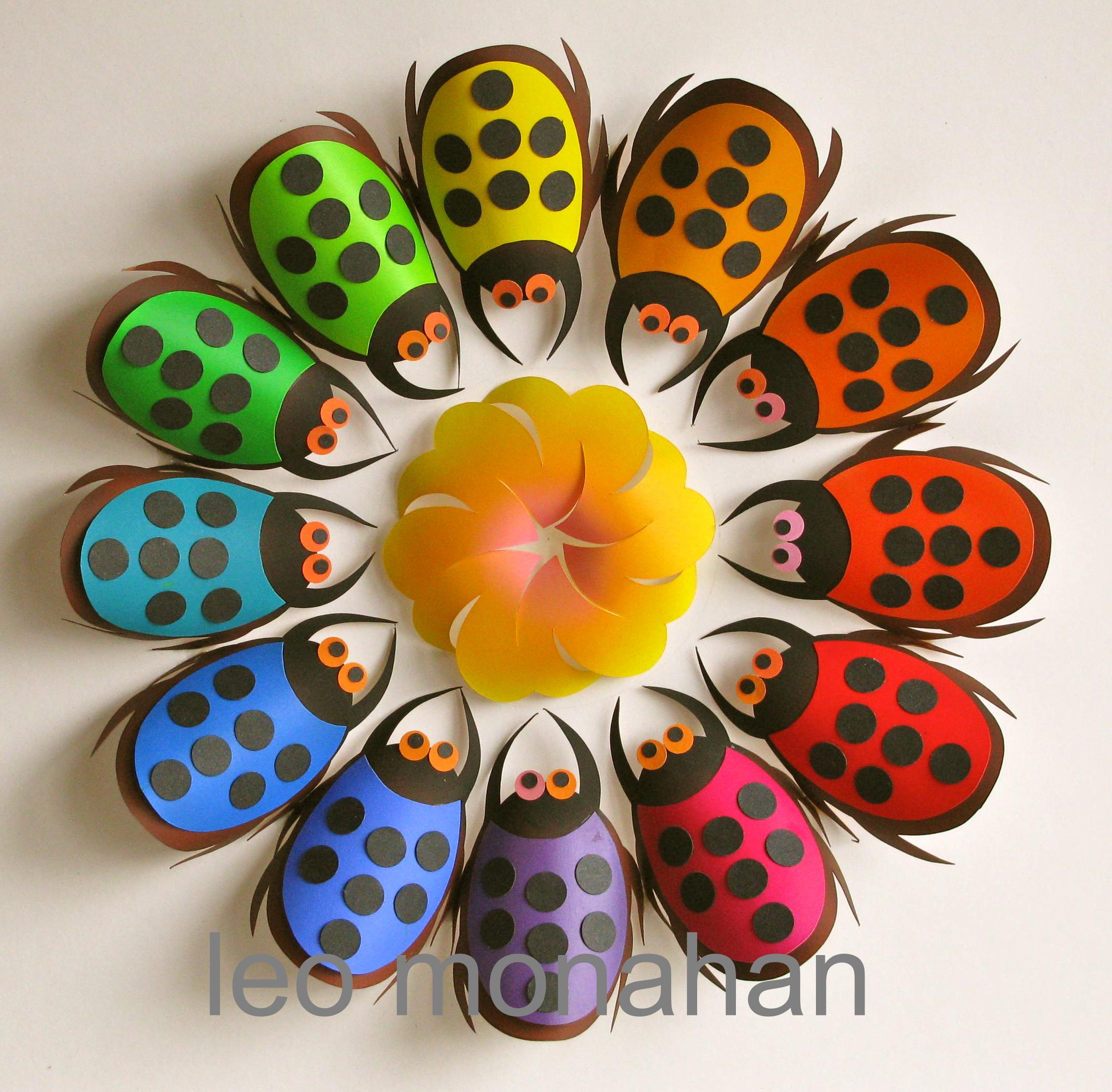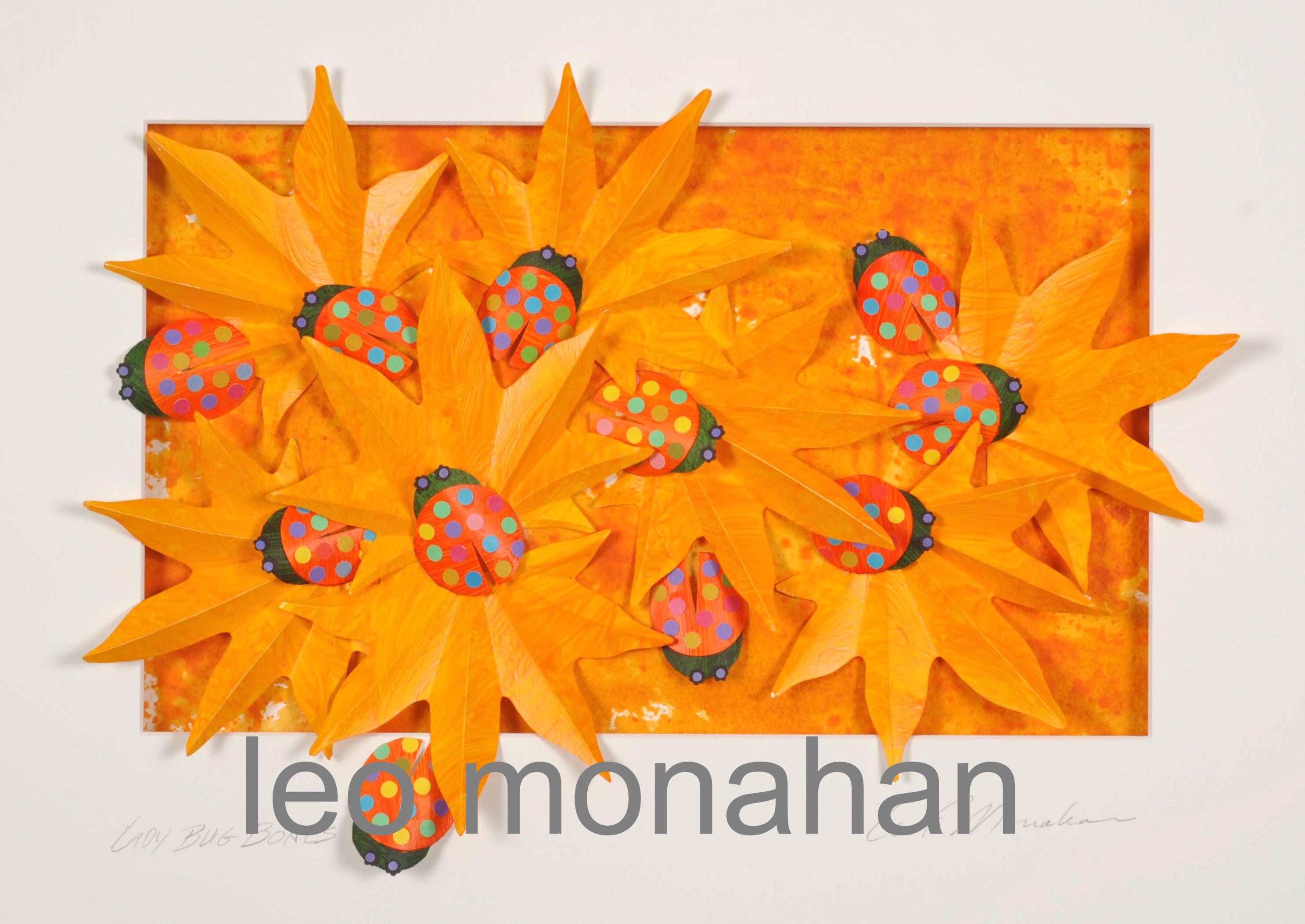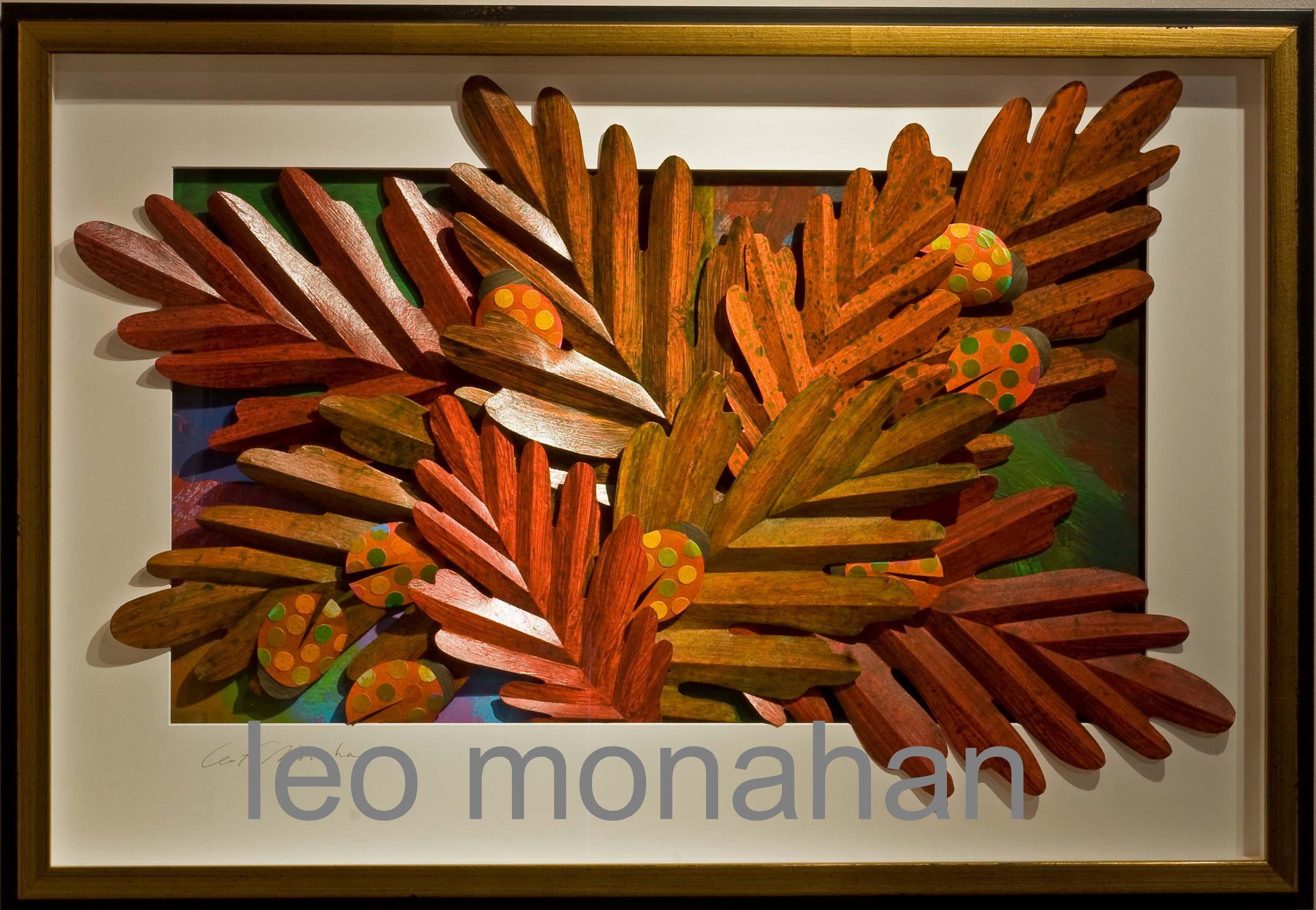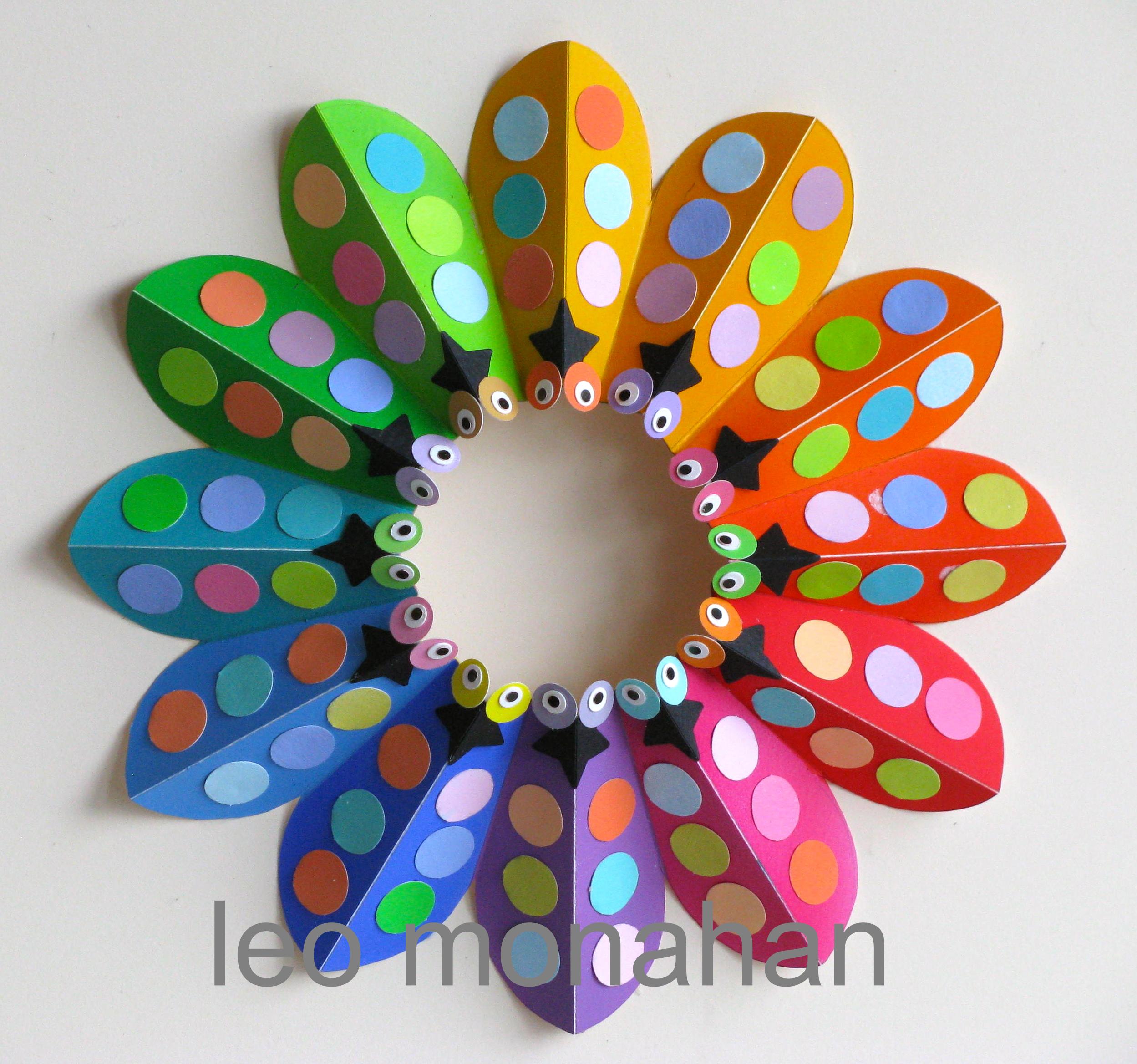Of my calcified priorities, one is a book on horned and antlered fish that I have been working on, and off and on, for several years. I’ve written about thirty funny fish, but the art seems to ooze out of me slowly. Research has been difficult because there are very few images in my reference scrap files.
These are probably the rarest of all fish of the sea and fresh water. Most are on the verge of extinction and are almost never caught or even seen. You might say that they are the “Bigfoot” of the finned species.

Jellyfish Color Wheel
I don’t have an appropriate color wheel for this subject. This Jellyfish spectrum will have to do until I can find a visual of the “spiked jellyfish”, which are the worst of the stinging group. The background is black to enhance the 12-color, Johannes Itten, Bauhaus color wheel which is slightly tinted, to the same degree, for maximum visual impact.
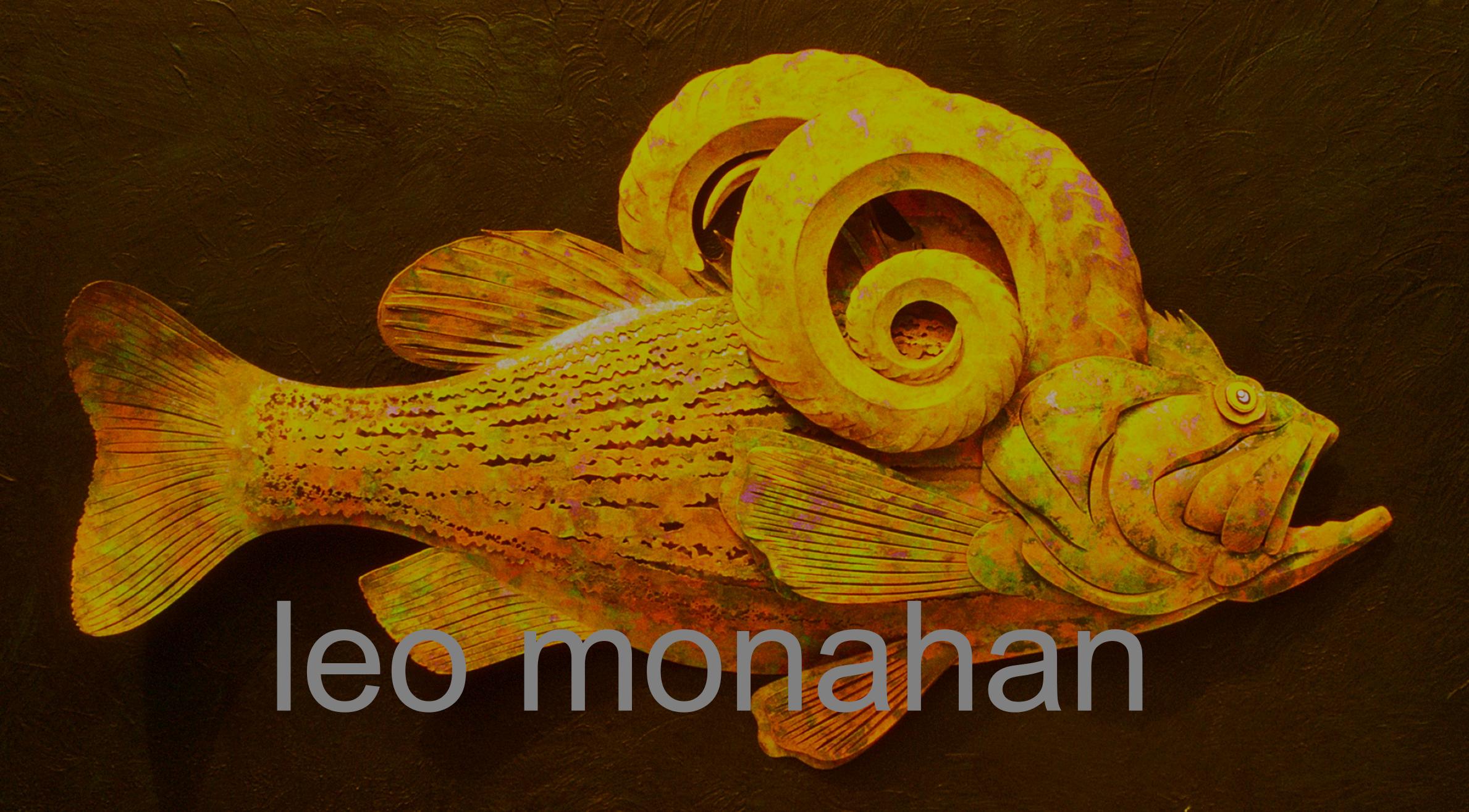
Rocky Mountain Big Horn Bass
The Rocky Mountain Bighorn Bass.
General Custer reported that the prairie lakes teemed with the progeny of bighorn sheep and ewe-loving bass. Young ewes, drinking at the water’s edge, were overpowered by gangs of teenage bass, intent on proving their “Basshood.” Many a young ewe lost her virtue to these mouth-breathing villains.
The Rocky Mountain Bighorn Bass is the only fish that bleats as it eats. Custer’s men wore the wooly bass skins for winter coats and used the big horns to carry their pun-powder.
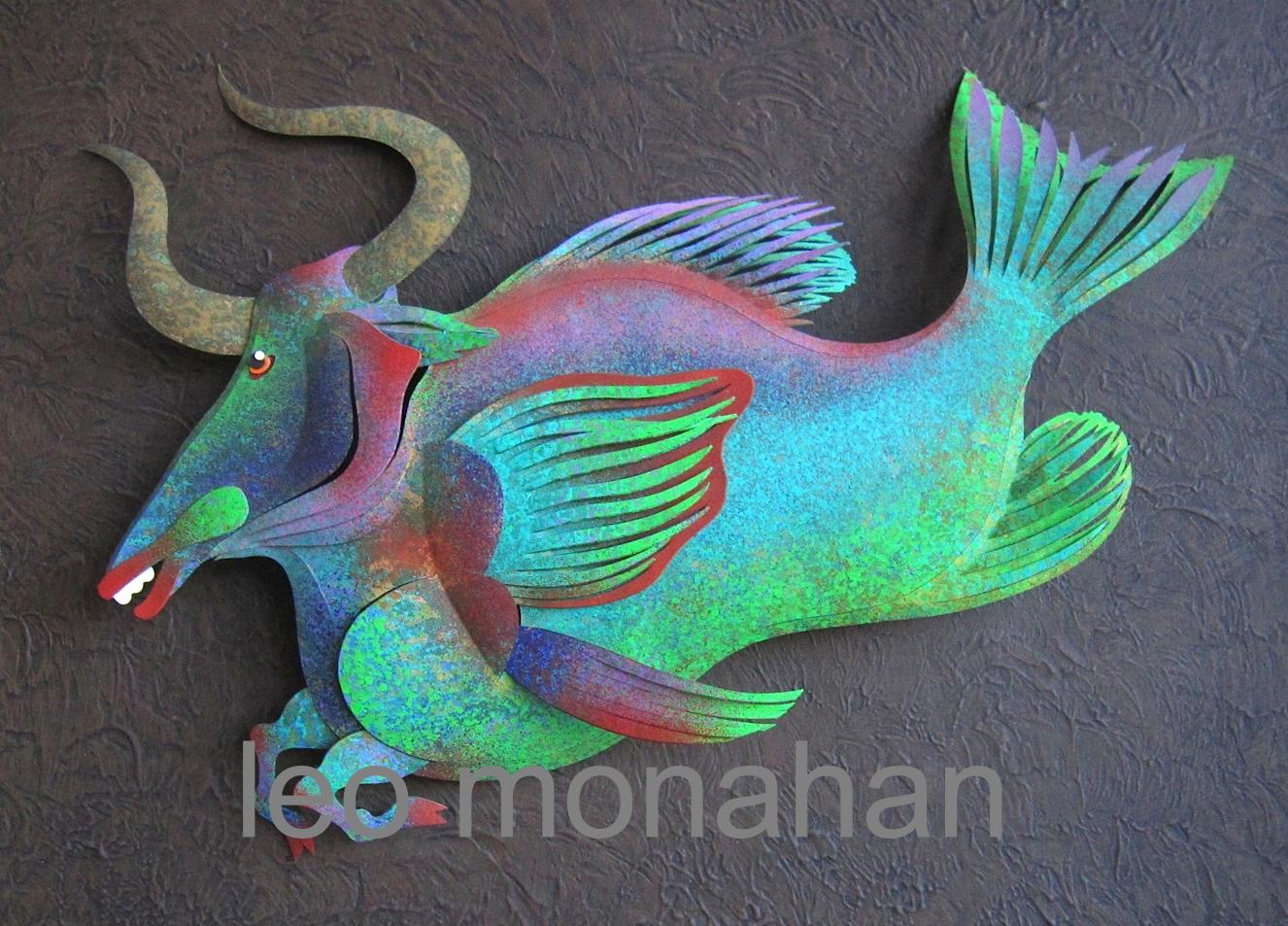
T.J. Bull Bass
The Tijuana Bull Bass.
Tijuana Bull Bass are known as the “Brave Bull Bass of Baja.” They bubble, snort and charge at Redfish and go loco at the sound of the Mariachi Trumpet-fish. The bull fighting pescadores battle in the Brave Bull Bass arena around Tijuana’s Cape Salsa, where the picador pescadores are suddenly unseahorsed, and barely a match for the sharp-horned Tijuana Bull Bass. The pescadors are awarded the tail, marinated in tequila and served as Bull Bass Burritos.
T.J. Bull Bass swim in singles sand bars, drink gin fins and bass beer, talk on the horn, and pick up senoritas at the spawn dance with old fish lines.
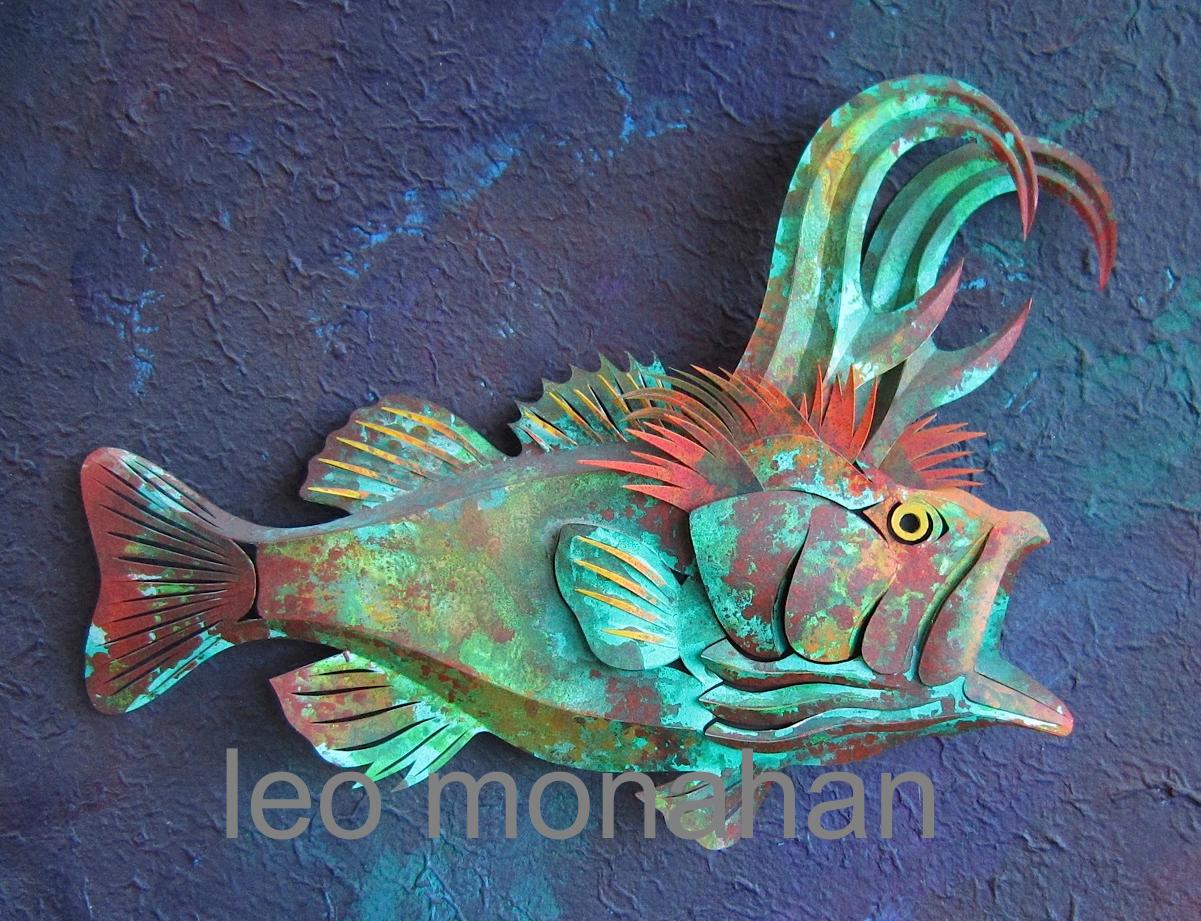
Basselope
The Bassalope.
The prairie was a big, quiet place. Out of loneliness, boredom, the desire for variety, and just something to do on a Saturday night, tender relationships developed during the millennia of mating among the fleet-footed antelope and the feisty bass.
The symbiotic result is the fast, fighting Basselope of today, now found only in a Montana river, which was named for the Basselope by Lewis and Clark. They dubbed it, the “Little Bighorn.” Bragging Basselopers who display trophy-size horns are said to be “running off at the bigmouth.”
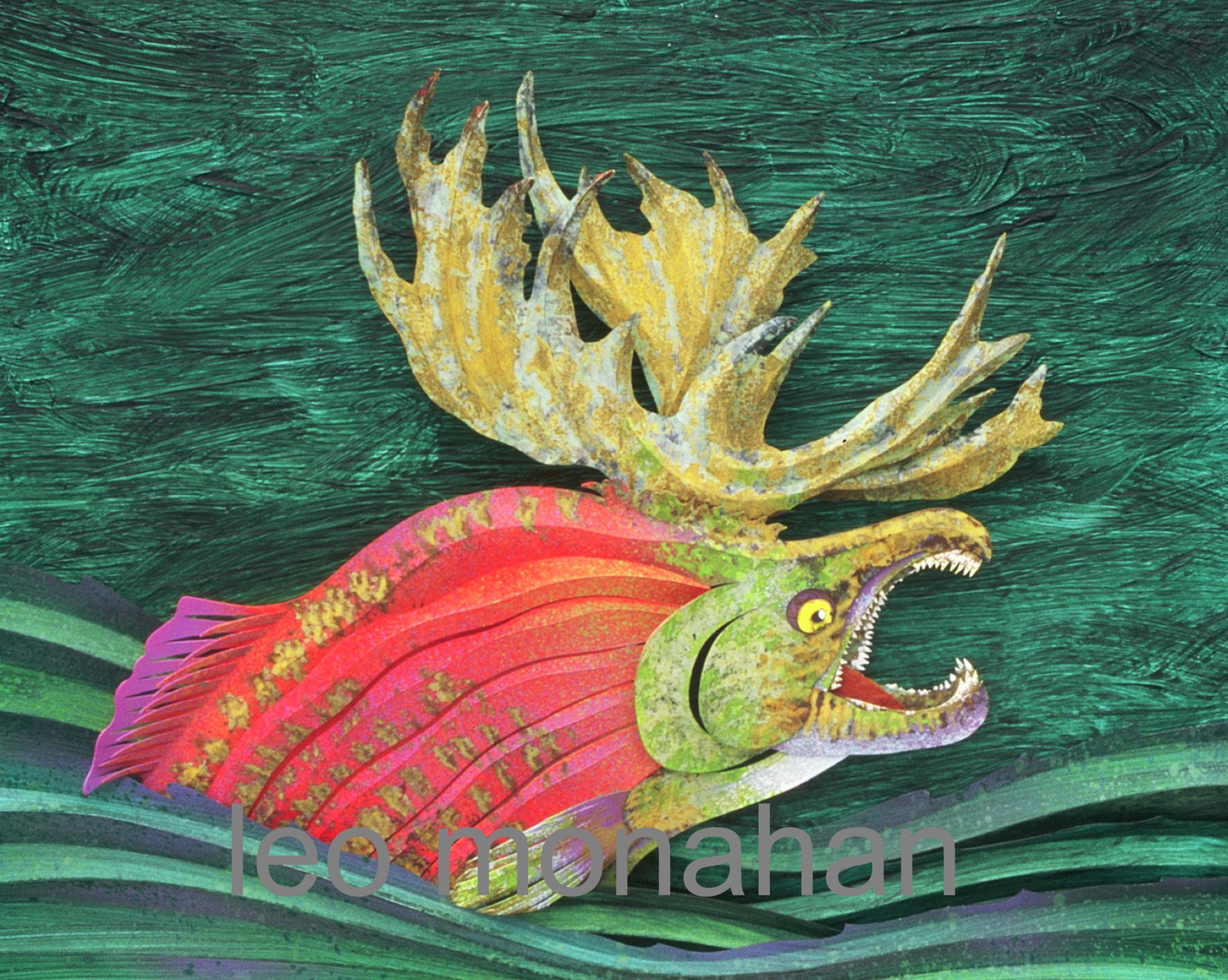
Salmon Moose
The Salmon Moose.
Absolutely nothing stands in the way of millions of spawning salmon surging their way upstream in Alaska’s rushing rivers. Lovely maiden moosettes, standing up to their bellies in the river rapids are savaged by crazed, testosterone-charged salmon, like sailors on shore leave. The result is the Alaskan Antlered Lox, known as Salmon Moose, a delicacy on a bagel with cream cheese.
The Salmon Moose is now quite rare because of poachers, who take the best of the early run, known on the Kenai River as “Poached Salmon Moose.”
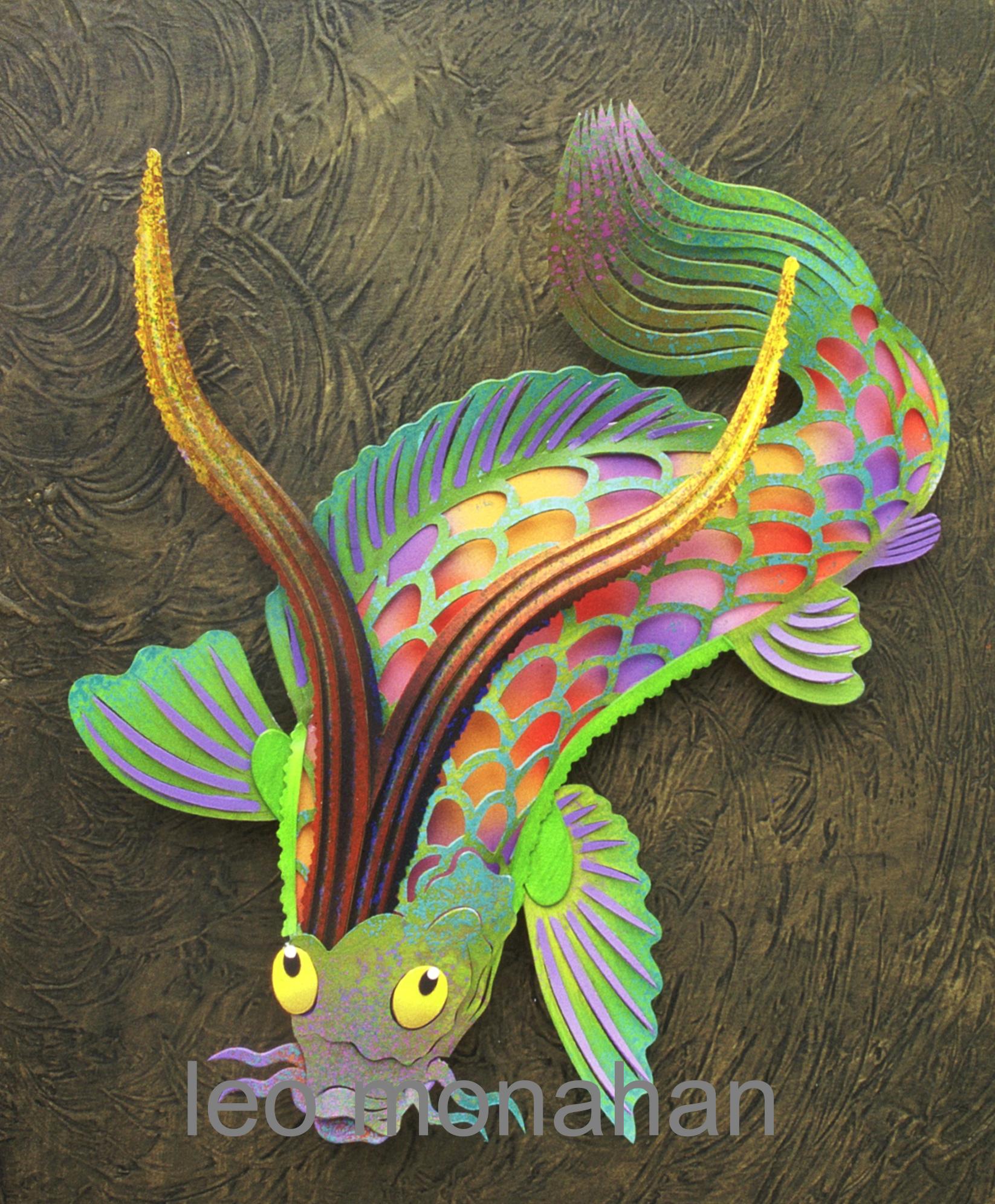
Koi Gnu Koi Gnu
The Koi-Gnu-Koi-Gnu.
The heavily scaled, bottom-sucking, gnu-horned carp, with a mud-ugly taste and plain grey color, was called the Congo Gnu-carp. It was hunted almost to extinction by Lionfish, but Koi keepers captured a couple and brought them to Hawaii where Koi breeders bred beautifully brilliant Koi-Gnu color combinations. In Kealakakua, Hawaii, King Kamahameha called them Koi-Gnu-Koi-Gnu. The Kealakakua Koi-Gnu-Koi-Gnu Carp Corp., is located where the prettily patterned Humuhumunukunukuapua’a goes swimming by my little grass shack in Kealakakua, Hawaii, and everyone sings, “three Kois in the fountain.”

Lake Elk
The Elked Carp
Coddled Carp are always getting “elked” in the Elkhart River. Mating carpettes moan, “elk me, elk me”, and the males elk them and they live happily ever after. Getting elked in the riffles in Elko, is known for great elking. The elked carp motto is, “Got Elk?”
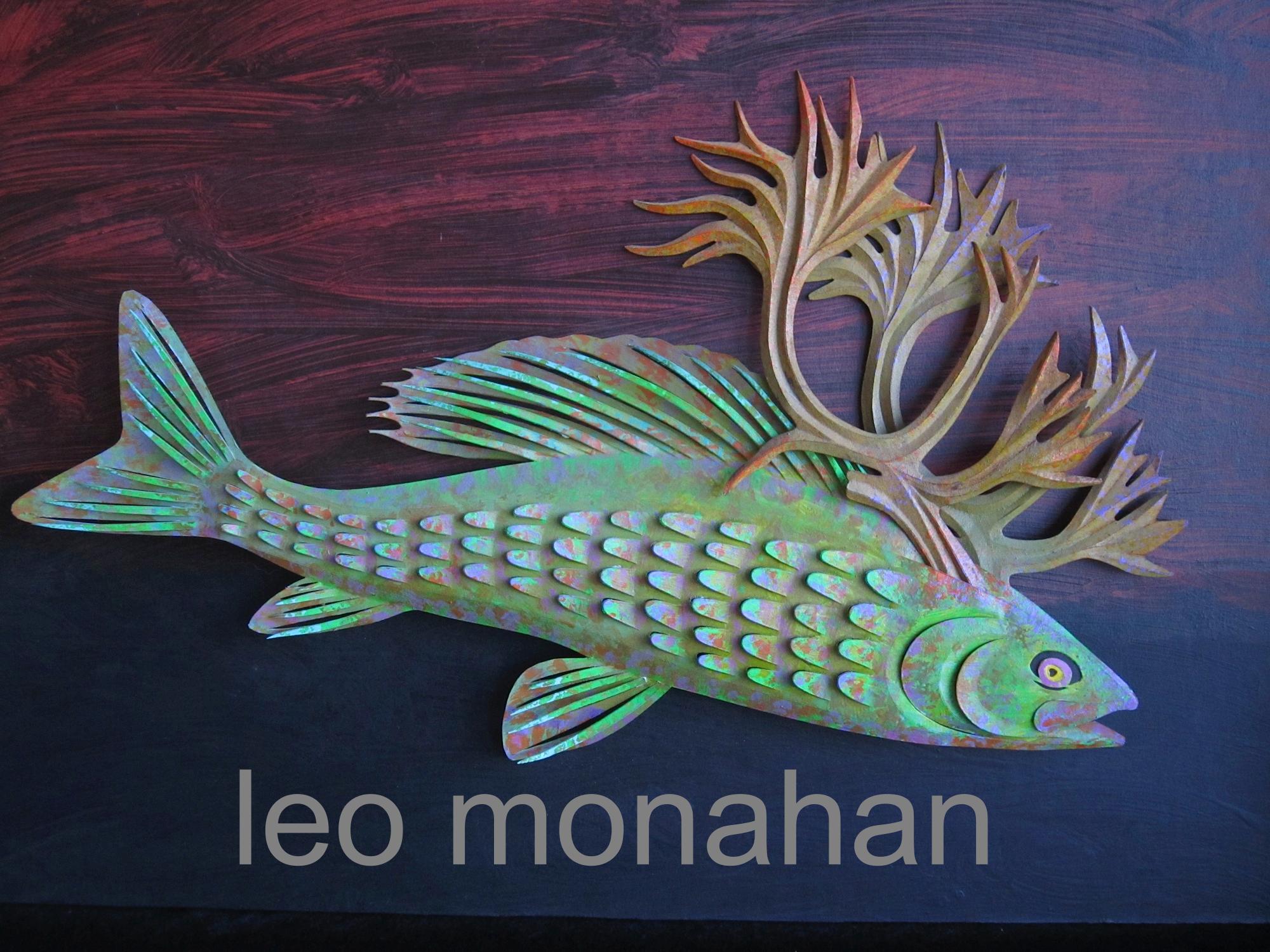
Caribou Cod
Canadian Caribou Cod
The Canadian Caribou Cod were the last to lose their distinctive caribou antlers. Today, codfish cavemen would not recognize the antlered fighters that they knew so well. They would leap into the rushing water and wrestle a giant, fin dancing Canadian Caribou Cod by the antlers, hoping that they wouldn’t get the carp knocked out of them. The cod cavemen displayed Canadian Caribou Cod, mounted head, trophies in their carpal tunnel cod club.
Thanks for visiting me in my strange world…
leo
I’m not content with what I know,
only with what I can find out.
My exhibit is still at the Grovewood Gallery in Asheville, NC. Click here if you are interested in my collage classes. New classes are being added for January and February.
Prices for these fish are: Bassalope, Koi Gnu, are $1000…TJ Bull Bass, Elked Cod, Caribou Carp, are $1500… Rocky Mountain Big Horn Bass is reduced to $2800 from $3200 because of a nick on the corner of the frame. The size of this one is 39×23″.

